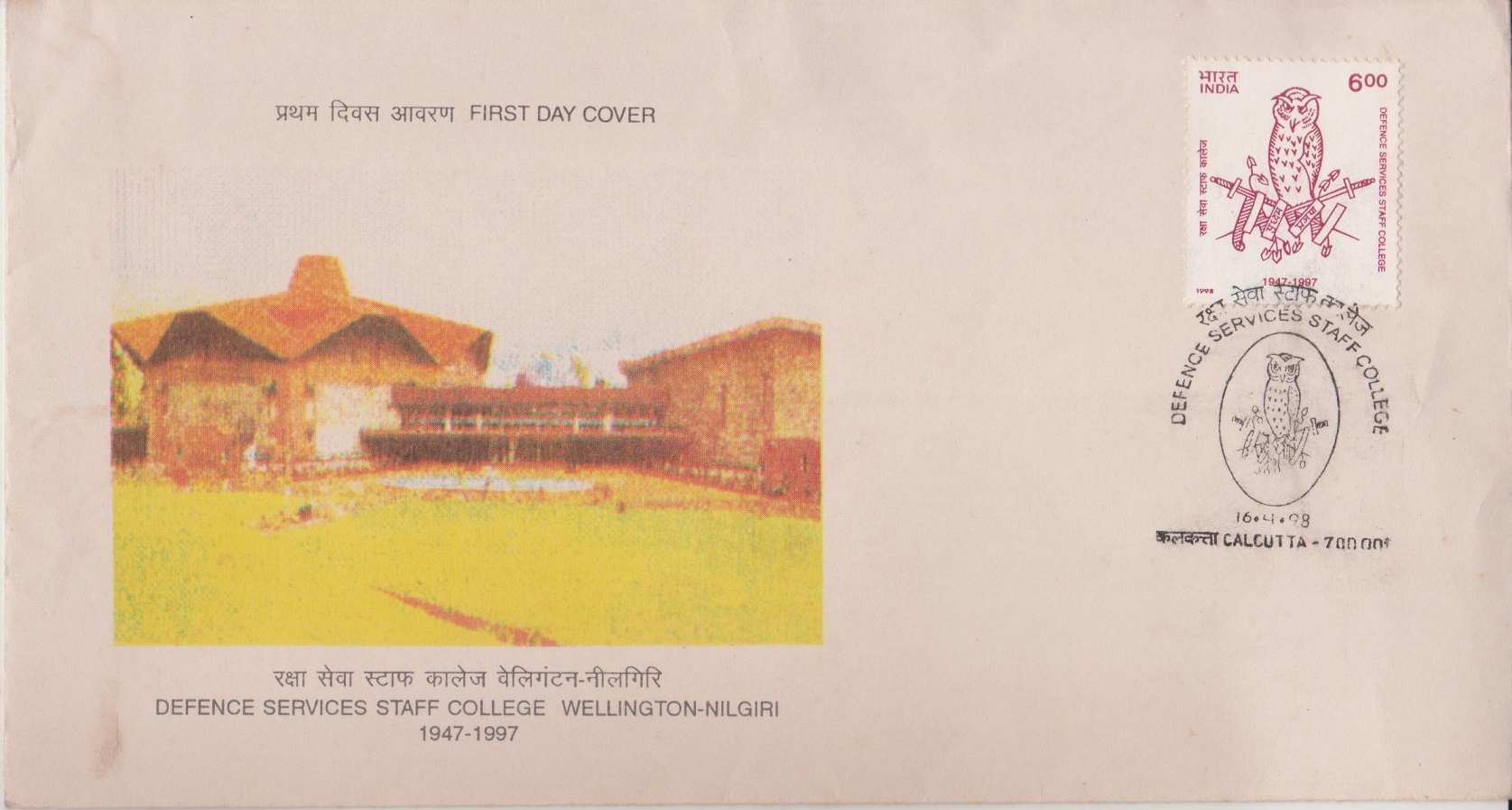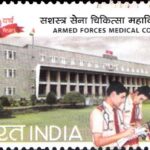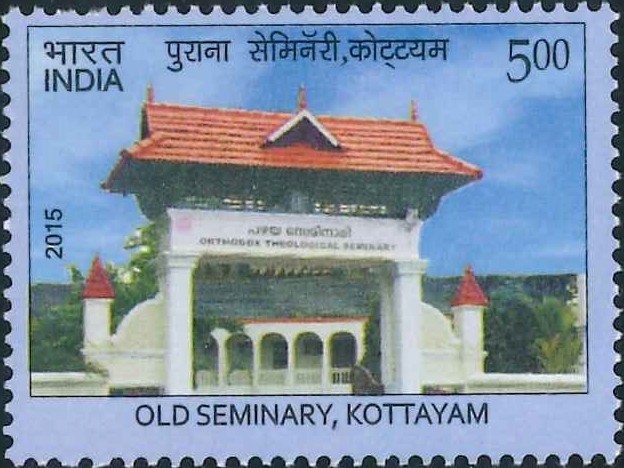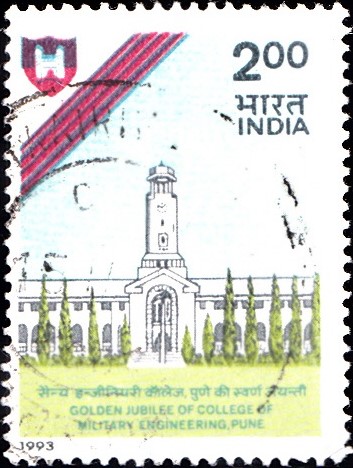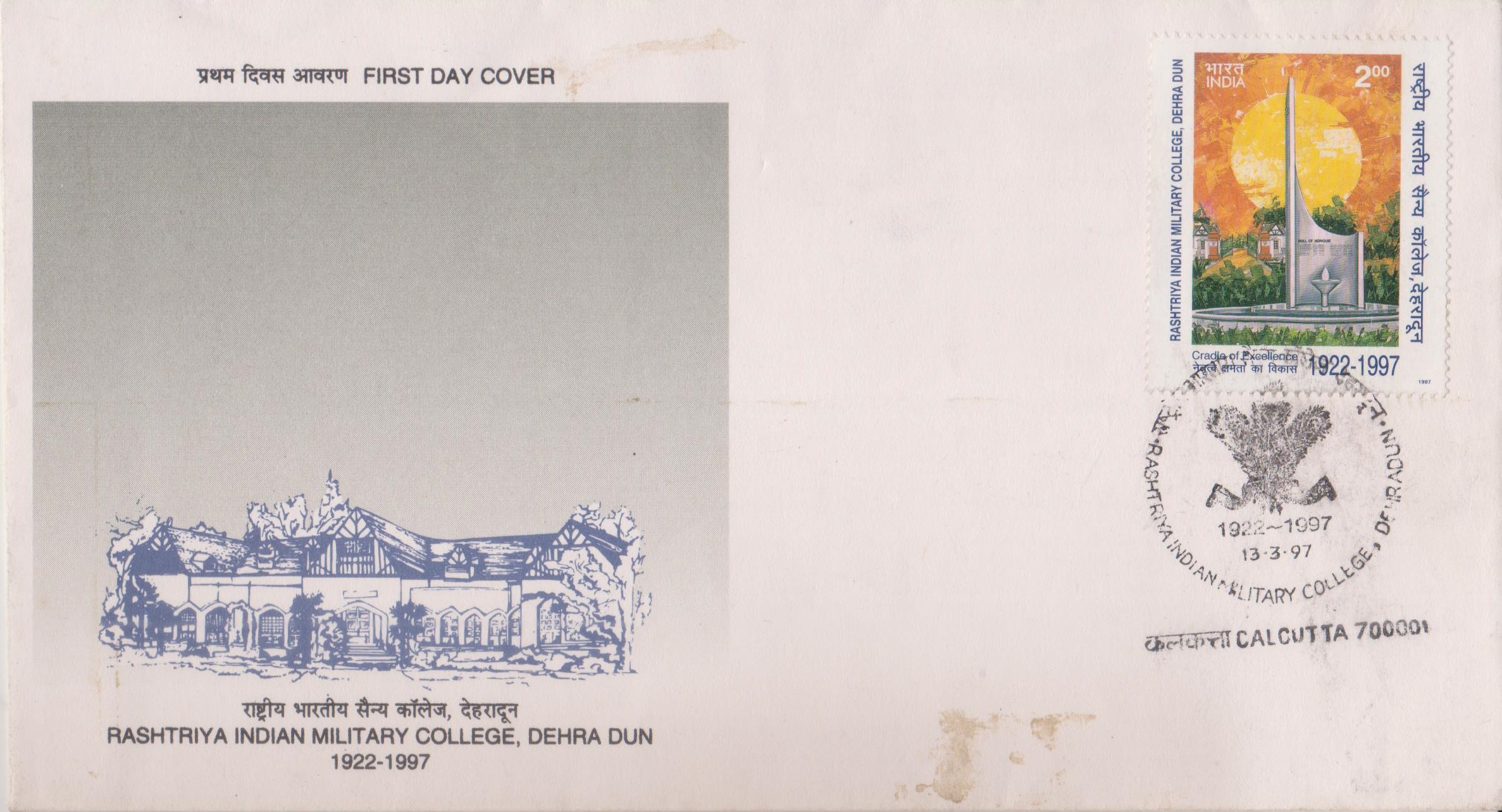
Indian Institute for Defence Studies and Analyses
A commemorative postage stamp on Institute for Defence Studies and Analyses (IDSA), a Public Policy Think Tank under Indian Ministry of Defence :
 Issued by India
Issued by India
Issued on Dec 30, 2015
Issued for : Department of Posts is pleased to release a Commemorative postage stamp on Institute for Defence Studies and Analyses.
Credits :
Stamp/FDC/Cancellation : Nenu Gupta
Type : Stamp, Mint Condition
Colour : Multi Colour
Denomination : 500 Paise
Stamps Printed : 0.6 Million
Printing Process : Wet Offset
Printer : Security Printing Press, Hyderabad
About :
- The Institute for Defence Studies and Analyses (IDSA) is a non-partisan, autonomous, registered, society, funded by the Ministry of Defence, Government of India. Established in New Delhi on November 11, 1965, the IDSA is dedicated to objective and policy relevant studies on all aspects of defence and security. Over the years, it has emerged as the nation’s premier think tank on strategic affairs.
- The IDSA was registered as a society on November 11, 1965. The initiative for setting up a non-partition, autonomous research institute dedicated to national security came from then Defence Minister Shri Yashwantrao Chavan, who was one of the Institute’s founding members. In the aftermath of the 1962 Sino-Indian war, a need was felt to establish a research outfit aligned to the government, both to educate policy makers about the larger security environment and to provide policy alternatives for use by the government.
- As per IDSA’s memorandum, the objective of the organization was “to initiate study, discussion and research on problems of National Security and impact of Defence measures on economic, social and political processes”, and to promote research and exchange of information on “defence studies and analyses, strategy, disarmament and international relations”. Over the years, the ambit of research and analysis of IDSA has expanded. In tune with the times, along with traditional hard security issues, the institution has added non-traditional security issues as an important area of research.
- The vision statement of the institute adopted in 2007 brings further clarity to its activities and emphasizes on policy-oriented research, training and capacity building and public education. The institute has played a crucial role in shaping India’s foreign and security policies. Its contribution has been particularly visible in areas related to nuclear weapons, military expenditure, and conventional and non-conventional threats to India.
- The IDSA’s larger mission has been to promote national and international security through generation and dissemination of knowledge on defence and security issues among the larger strategic community in India and the world. It has also served as a forum to debate various issues related to national and international security. Through regular seminars, conferences, roundtables, and workshops, attended by practitioners, academics, journalists and strategic analysts, the Institute helps generate ideas, analyses and policy inputs relevant for use by the decision makers of the country.
- The IDSA is funded entirely by the Ministry of Defence, Government of India. It is governed by a neutral and non-partisan Executive Council, comprising distinguished personalities, elected for a period of two years, by the general body. The Council is headed by a president and supported by committees covering different aspects of the Institute’s work. The stakeholders include Government, Parliament, Strategic Community, Media and the General Public.
- Although the IDSA is funded by the Ministry of Defence, Government of India, it has all through protected and maintained its autonomy. The structure of the Institute helps it to maintain its autonomy. The Executive Council of the Institute, which consists of elected members including the President and a few ex-officio members from the government, is fully empowered to take decisions pertaining to personnel, establishment, administration etc. The Director of the Institute decides the research agenda. The system has functioned well and is a model for other government funded institutes as to how best to maintain their autonomy.
- The institute has a well-qualified multi-disciplinary research faculty drawn from academia, defence forces and the civil services, representing a diversity of views. This helps in cross-fertilization of ideas and strengthens the quality of research. The faculty is chosen through open interviews. Apart from a dedicated research faculty, the Institute encourages serving officials from government, military services, academics and media to join as faculty from time to time.
- The research activities of the Institute are conducted by different centres focusing on different areas.
- India’s growing profile as an emerging power has helped the IDSA raise its profile nationally and internationally. Against this setting, the IDSA has positioned itself well, and played a key role in interacting with policymakers and raising awareness about strategic issues in the public. The objectivity of IDSA publications as well as their quality has ensured that the Institute is seen as a respectable think tank in the country and abroad.
- Text : Based on the material received from proponent.
Subscribe
Login
0 Comments



